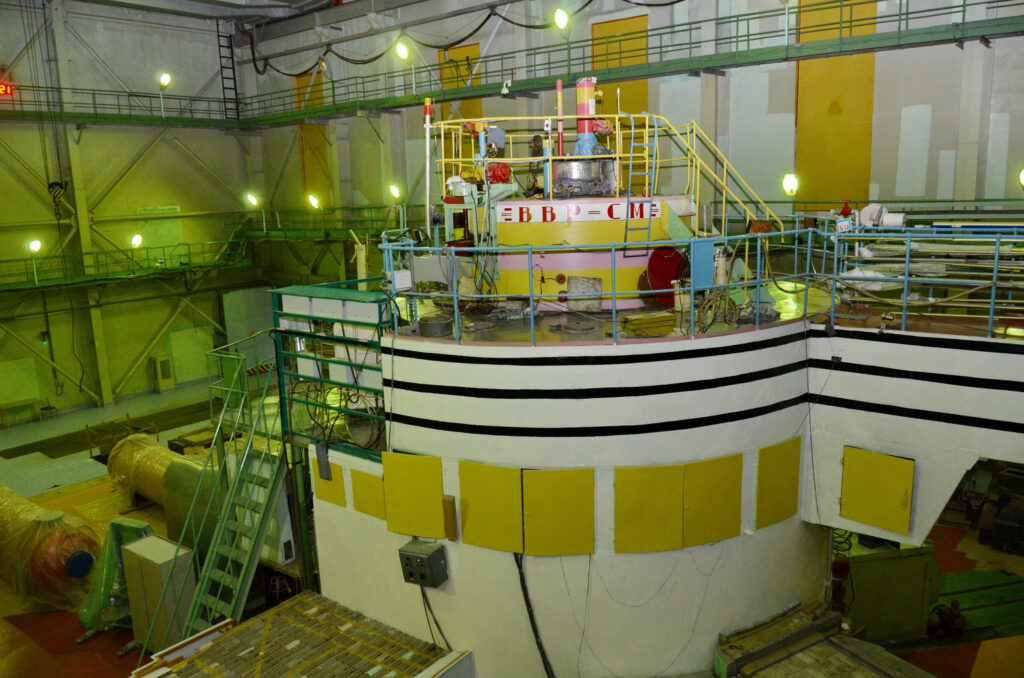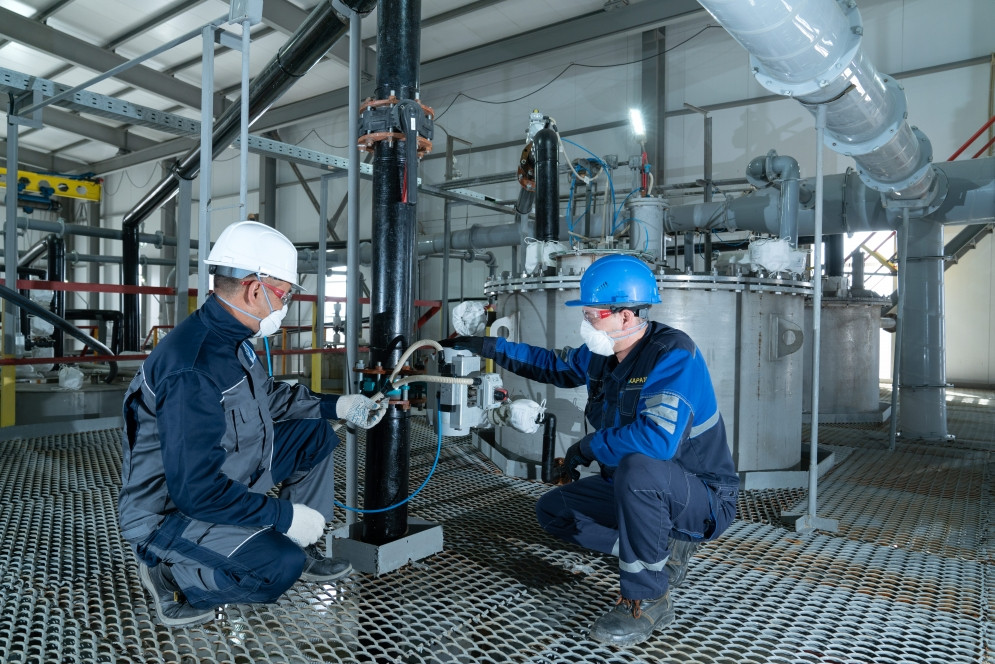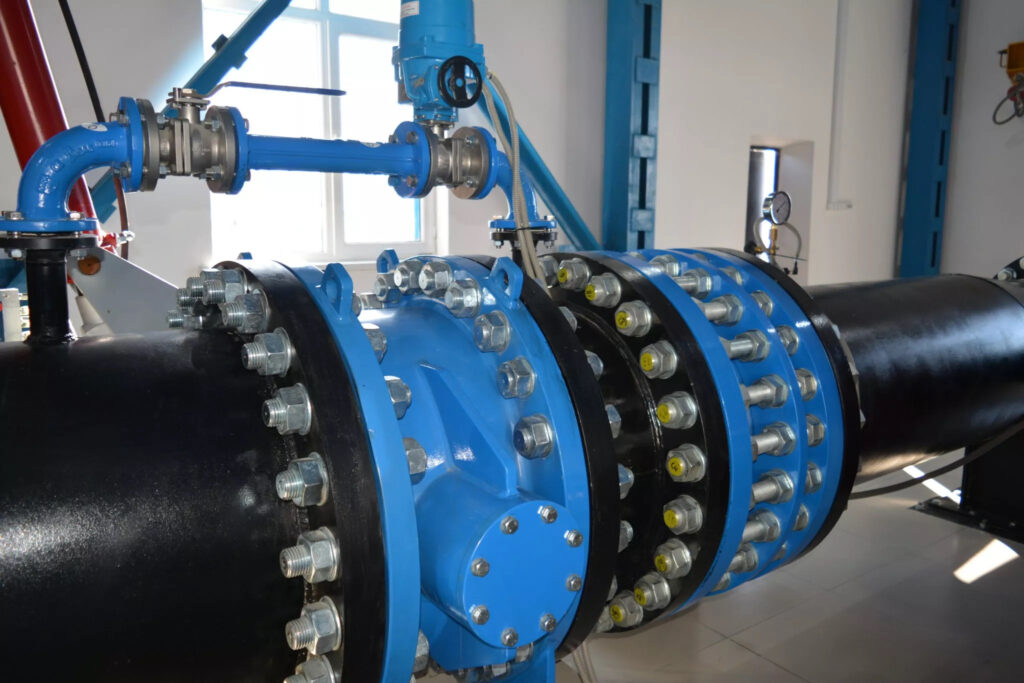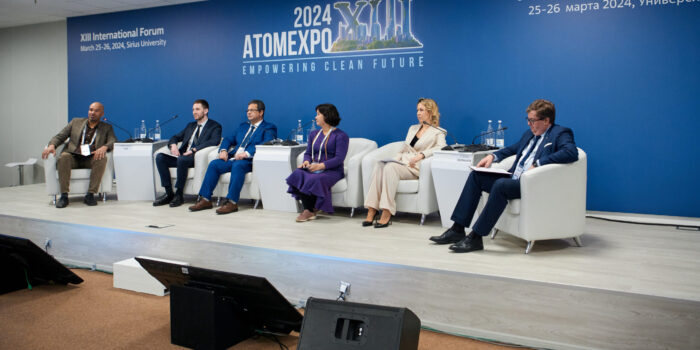Rosatom’s office in the region is located in Astana. The regional center “Rosatom Central Asia” was opened in 2014, and it supervises activities in the countries of the Central Asian region. In addition, country offices were opened in Tashkent (Uzbekistan) in 2019 and in Bishkek (Kyrgyzstan) in 2023.
Rosatom projects in Uzbekistan
At the end of 2017, Russia and Uzbekistan signed an intergovernmental agreement on cooperation in the peaceful uses of atomic energy. In 2018, an intergovernmental agreement was signed on cooperation in the construction of a Russian-design nuclear power plant in Uzbekistan, consisting of two power units of 1.2 GW each with VVER-1200 reactors. In September 2018, an intergovernmental agreement on cooperation in the construction of a nuclear power plant in Uzbekistan was signed.

The site for the construction of the plant has been selected. It is located near Tuzkan Lake in the Jizzakh region. Site engineering surveys have been completed, and the suitability of the site for the construction of the NPP has been confirmed. The optimal technical configuration of the design has been determined.
Today, Rosatom and Uzatom are working on a draft of the general contract for the construction of the plant.
Once built, the NPP will serve to save about 3 billion cubic meters of gas per year. In addition, more than 8,000 new jobs will be created in Uzbekistan during the construction and operation of the plant.
Uzbekistan operates a Soviet-design research reactor (VVR-SM) at the site of the Institute of Nuclear Physics in Ulugbek settlement (20 kilometers from Tashkent). Package fuel supplies for the operating research reactor are provided under a contract with JSC TVEL.
In September 2020, JSC Rusatom Healthcare and one of the largest fruit and vegetable holdings in Uzbekistan formed a joint venture to implement a project to create a multipurpose irradiation center based on an electron beam accelerator. Rosatom has already started manufacturing the main process equipment, and the site is currently being selected.
The Tashkent branch of the National Research Nuclear University MEPhI (TB NRNU MEPhI) was established on December 28, 2018. TB NRNU MEPhI is the first foreign branch of a top-tier university, which trains engineering profile specialists.
The Institute of Nuclear Physics of Uzbekistan is one of the main participants of an international Consortium based on the MBIR reactor. According to the agreement signed in November 2022, a number of areas of cooperation between the Republic and Rosatom are being considered. Uzbekistan’s priority in the field of applied nuclear physics is making radioisotope products and using them for the manufacture of radiopharmaceuticals for medicine.
On September 18, 2023 a memorandum of understanding on strategic partnership in the field of nuclear medicine was signed between Rosatom and the Ministry of Health of the Republic of Uzbekistan. The memorandum provides for the formation of a joint working group to establish a nuclear medicine center in Uzbekistan.
Rosatom projects in Kazakhstan
Rosatom has a long-standing close partnership with Kazakhstan. The main area of cooperation is the joint mining of natural uranium: it is carried out by joint ventures in Kazakhstan using the advanced, environmentally friendly method of in-situ leaching. Other important areas of cooperation include fuel supply for research reactors, spent fuel and radioactive waste management, nuclear research technologies, gas and petrochemicals, and thermal power projects.

One of the promising areas of possible cooperation is the construction of a nuclear power plant in Kazakhstan. Based on information available, Rosatom has been included in the short list of potential suppliers of NPP technologies formed by Kazakhstan partners.
The Kazakhstan branch of the National Nuclear Research University MEPhI was opened in 2022. It trains specialists in nuclear energy and IT.
Rosatom projects in Kyrgyzstan
In January 2022, Rosatom and the Ministry of Energy of the Republic of Kyrgyzstan signed a Memorandum on cooperation in the construction of SMR NPPs. Within the framework of the memorandum, the parties express interest in developing cooperation on the construction of SMR NPPs based on the RITM-200N reactor.

On February 15, 2023, NovaWind JSC (wind power division of Rosatom) and the Ministry of Energy of the Republic of Kyrgyzstan signed a Memorandum on understanding and cooperation in the implementation of wind power projects. In October 2023, NovaWind JSC and the Russian-Kyrgyz Development Fund signed an agreement on the development and implementation of an investment project to build a wind power plant in the Issyk-Kul region of the Republic of Kyrgyzstan.
Rosatom is actively involved in the implementation of a project to build small hydroelectric power plants in the Republic of Kyrgyzstan: the Leilek HPP with the capacity of 5.9 MW, the Jerui HPP (28 MW), and the Chandalash HPP (30 MW).
Since 2017, Rosatom has been carrying out work to bring uranium tailings in Kyrgyzstan to a radiation-safe condition. In 2023, works on reclamation of the Kak tailing dump and liquidation of the Taldy-Bulak tailing dump near the Min-Kush settlement were completed. Preservation of the Dalneye tailing dump and liquidation of the Tuyuk-Suu tailing dump is ongoing.

In June 2023, Rosatom and Kyrgyzstan signed a Memorandum on cooperation in the field of non-energy application of nuclear technologies in healthcare. In particular, this includes the establishment of a radiopharmaceutical pharmacy and a molecular imaging center at the National Center for Oncology and Hematology (NCOH), where advanced methods of diagnostics and treatment of oncological and other diseases will be applied.



